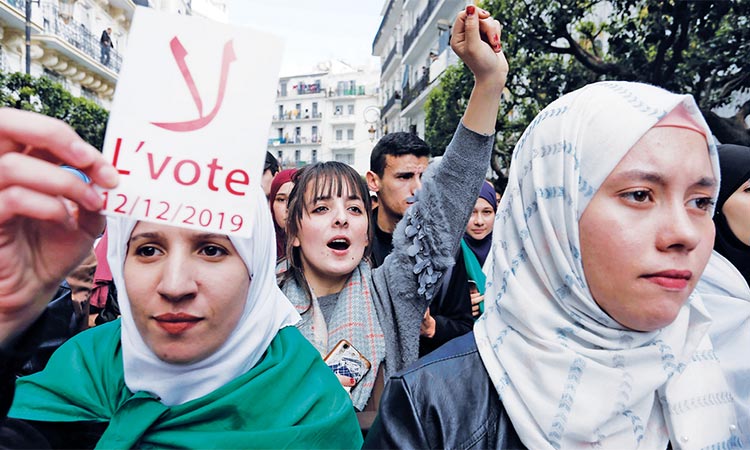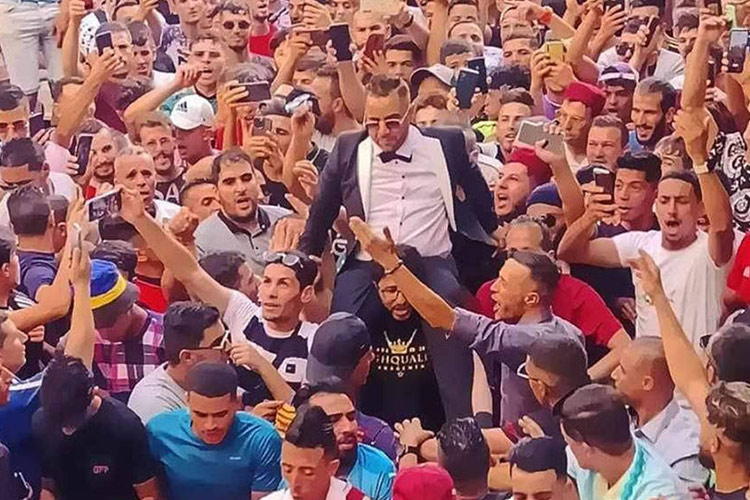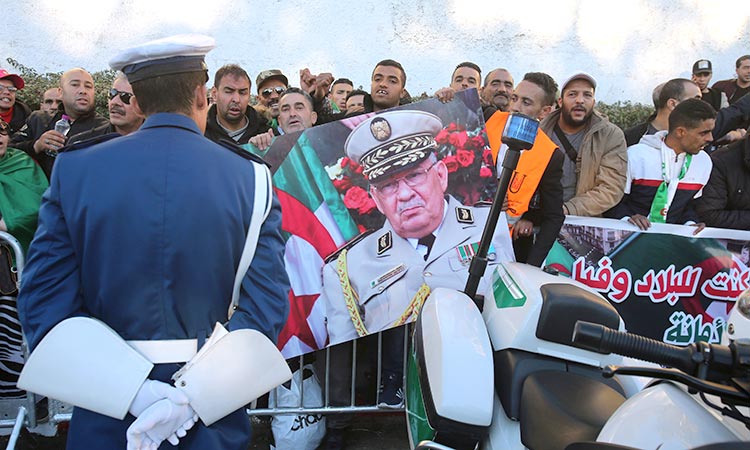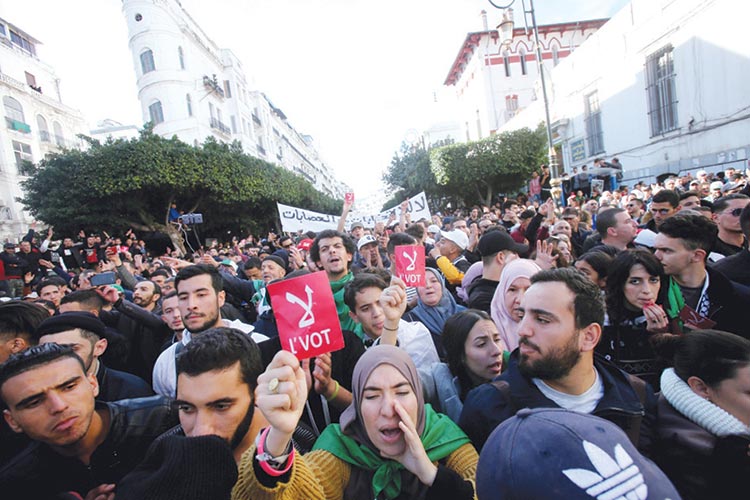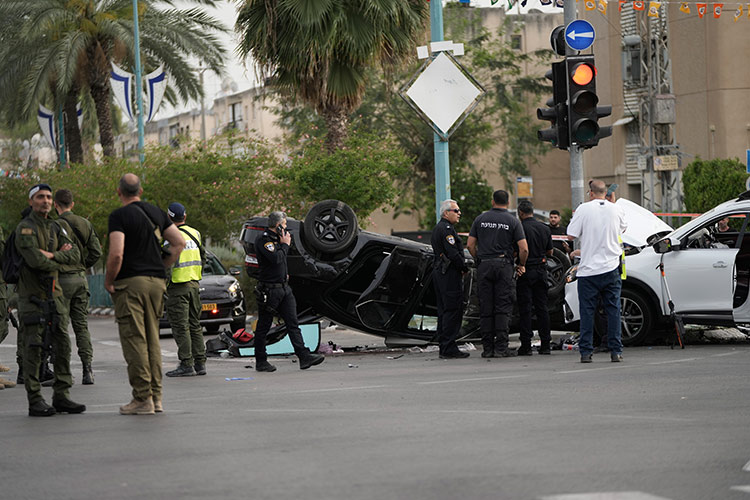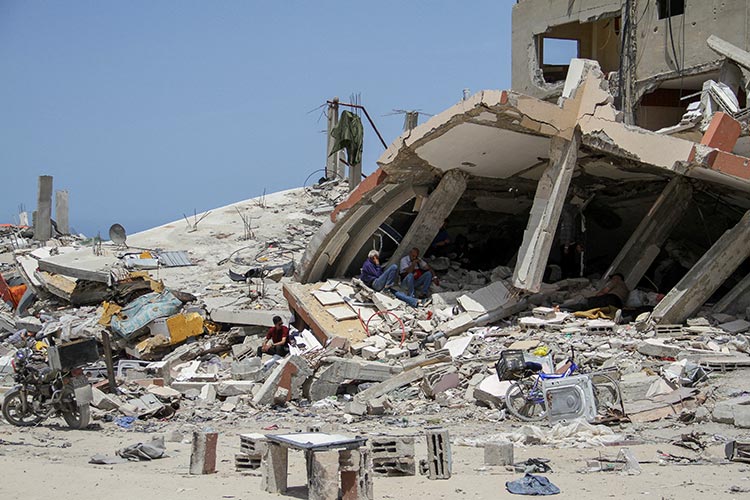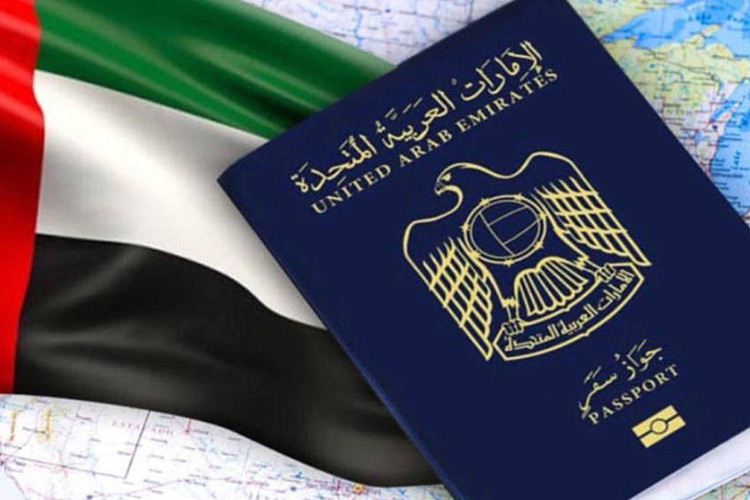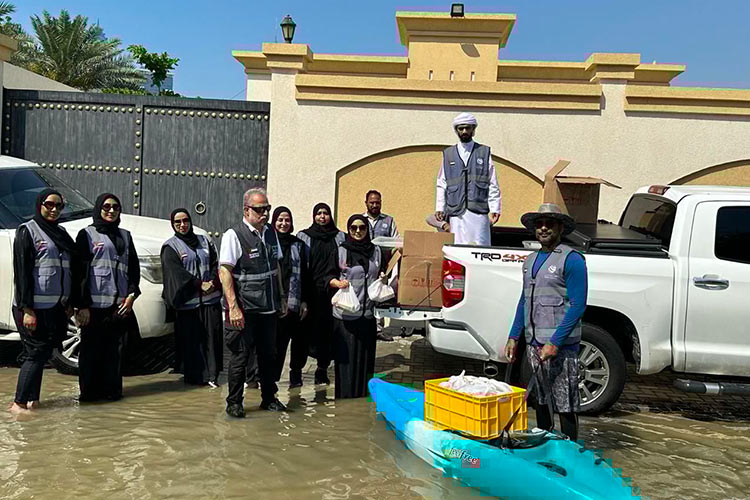Algerian council scraps July 4 presidential election
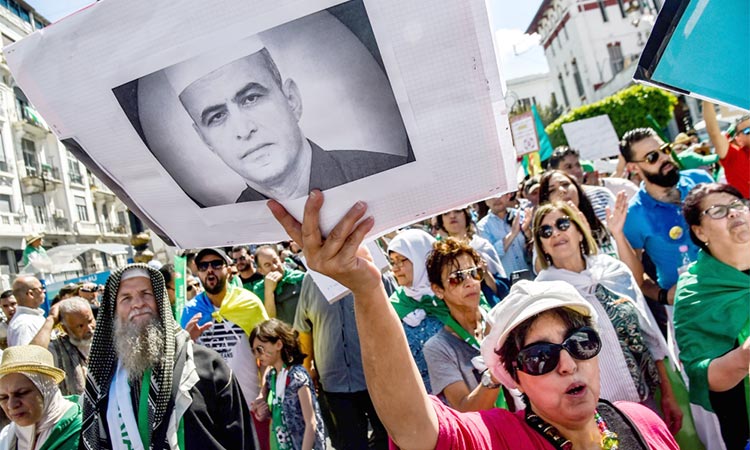
A protester marches with a sign showing the portrait of activist Kamel Eddine Fekhar, who died days earlier, during a demonstration in Algiers. AFP
Algeria cannot hold a presidential election planned for July 4 due to a lack of valid candidates, its constitutional council said on Sunday, prolonging the country's transition after President Abdelaziz Bouteflika resigned two months ago.
The move will likely extend the rule of interim President Abdelkader Bensalah, who was meant to stay only until the vote to elect a new president after Bouteflika ended his 20-year rule in the wake of mass protests.
The move comes after weeks of demonstrations intented to pressure political leaders into postponing the vote.
"The constitutional council rejects the candidature applications" and as a result has announced "the impossibility of holding presidential elections on July 4," the council said in a statement carried by national television.
It will now be up to interim president Abdelkader Bensalah to "again convene the electoral body and to finalise the electoral process" until a new leader is sworn in, the council said.
Bensalah, the former upper house speaker, was appointed on April 9 under constitutional rules which deem a presidential election must then be held within 90 days.
With that deadline certain to be missed, the constitutional council suggested his mandate be extended.
The planned vote has drawn widespread protests, with Algerian demonstrators demanding Bouteflika allies step aside to make way for a broader political overhaul before any elections are held.
"No elections with this gang in power," protesters shouted in central Algiers on Friday, as demonstrations were held across the country.
Crowds in the capital filled central avenues where they shouted slogans rejecting the army chief's push for dialogue.
General Ahmed Gaid Salah on Tuesday called for "mutual concessions" between Algeria's interim leaders and protesters, with "productive dialogue" to ensure elections were held as soon as possible.
The army chief has emerged as a key powerbroker since Bouteflika stepped down on April 2 in the face of mass protests against his bid for a fifth term.
'High-risk victory'
Gaid Salah had been an ally of the ailing president, but as pressure from demonstrators mounted he ultimately called for the long-time leader's impeachment.
Protesters have since called for Gaid Salah to step down, along with other top figures they argue are tainted by their allegiance to Bouteflika during his 20-year rule.
While Gaid Salah had pushed for polls, July 4 looked increasingly implausible as no major party nominated a candidate.
A major obstacle emerged when some mayors and magistrates said they would not take part in organising the polls.
The two unknown figures who put themselves forward — Abdelhakim Hamadi and Hamid Touahri — had not been expected to gather the necessary 60,000 voter signatures to validate their bid for office.
The decision to postpone the presidential election was described as a "victory for the street, but a high-risk victory" by Geneva-based political scientist Hasni Abidi.
"With this decision, those in power are taking a path which they won't have control over anymore. The army wants to show that it is demonstrating common sense and making a concession in the face of an uncompromising street (movement)," he said.
The demonstrations have been largely tolerated by security officials overwhelmed by the crowds.
But dozens of people were detained ahead of Friday's rally, and numerous arrests were made a week earlier during a protest in central Algiers.
Agence France-Presse/ Reuters
